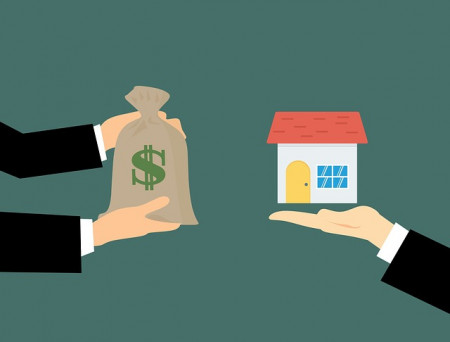Be Wary of ‘We Buy Any House’ Scams
Have you ever seen the “We Buy Any House” or “We Buy Any Home” flyers or websites? To those who are desperately trying to do a fast house sale, these ads appear to be a godsend. They promise fair prices and instant cash payment. But as the old saying goes, if it looks or sounds too good to be true, then it probably is.

Image courtesy of Pixabay
Types of ‘We Buy Any House’ scams
A number of the companies offering these amazing deals are rarely upfront about almost every aspect of the deal. Some of their most dangerous concerns include:
• Unrealistic Offer Prices
Home owners will be offered incredible, above market prices for their house. This is designed to lure the customers in. They will then commence to ‘process’ the deal. The sellers, by now, will probably end their relationship with their real estate agent or any negotiations with other interested parties. They might even already be mentally spending their new fortune. Some go even go a step further and start spending money they think they will get (usually using credit cards).
After a few days though, the scammers will get in touch and highlight some sort of a problem with the deal or your house, and immediately reduce the offer price. The seller is now in a vulnerable position, and understandably concerned about the alleged ‘problem’ mentioned by the scammers. Chances are, they will crumble under the pressure and accept the reduced offer, which are likely to be below market price.
• Cash Offers
There are probably just a handful of companies which are capable of buying houses for cash. The rest of the companies claiming to do so are just online agents working on a commission. Sometimes, the companies reduce the cash offer to earn a higher commission rate.
• Data Thefts
Some of these companies aren’t even interested in buying houses. They are just interested in obtaining confidential personal information about the sellers and their spouse. They will give sellers a very detailed form and ask for copies of all the usual documents, including banking information and personal identification. Once they have obtained enough data, they will just inform the seller that they are not interested in the property.
With the trove of personal information in hand, they will attempt to access the sellers’ bank accounts, email, etc. using brute force tactics or social engineering - but only after a sufficient amount of time has passed so sellers won’t linked the breach to them. They might also make loan applications, rental agreements, and hire purchase contracts using the stole data. Things could get very messy.
How should sellers protect themselves?
Home owners should perform a comprehensive due diligence before even considering calling such companies. Start by searching on the internet the name of the agent or the company, and try to find reviews of their service. If there are no reviews, then sellers should not call them.
If there is an office address, drive to it and see if it actually exists. If the address is fake, or if there is no office address, don’t call them.
Those are two big red lights that should stop sellers from making any contact with them. And if they do pass the two tests, request for proof of funds at the start of negotiations. If they can’t furnish it, don’t waste your time – move on.